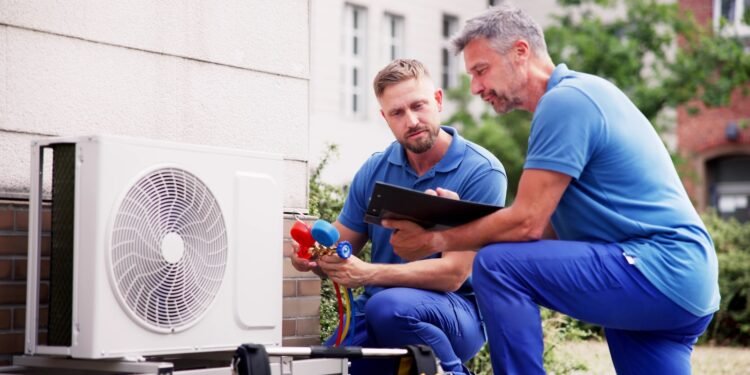While much of the country bundles up during winter months, Florida climatic conditions remain relatively mild year-round. However, when the sunshine state’s notoriously hot and humid summer rolls around, households without optimized insulation and air conditioning tend to struggle keeping interiors comfortable.
Without proper heat mitigation strategies, Florida’s long summers keep its residents mostly indoors. This results in skyrocketing electricity bills from overworked HVAC systems along with stifling indoor temperatures.
Fortunately, homes across the sunshine state can implement key optimizations — namely attic insulation upgrades and HVAC maintenance — in preparation for intense temperature and moisture levels annually recurring.
Florida’s Climate Demands Robust Cooling Capabilities
Florida features relatively warm winters with average low temperatures rarely dropping below 50 degrees Fahrenheit – even through January nights that would be frigid elsewhere. However, the state’s temperate winter climate belies its notoriously hot, humid summers.
From May to October, average high temperatures can rise to 90s statewide. Factor in intense humidity, and heat index values registering over 100 degrees Fahrenheit become the norm. To maintain safe, comfortable living conditions through summer, most Florida households inevitably come to rely on air conditioning.
Studies indicate that the vast majority of the state’s homes leverage air conditioning as the primary cooling mechanism. Without climate control capabilities, interior spaces can reach dangerous temperatures — especially during heat waves.
Additionally, the humidity lingering after sunset traps residual warmth curtailing the usual overnight cooling effect. For households occupying improperly insulated structures or equipped with insufficient AC systems, summer months bring unrelenting heat with little relief.
Attic Insulation Essential for Energy Efficiency
While capable HVAC systems provide necessary cooling power, effective insulation regulates heat transfer into interior living spaces. Otherwise, inadequately insulated attics enable sunlight-fueled warmth to penetrate occupied rooms below the roofline.
During summer months, poorly insulated attics essentially function as slow cookers radiating heat downward. This taxes air conditioning systems trying to maintain cooler indoor temperatures against intense heat infiltration.
However, improving attic insulation provides vital support toward efficient, economical cooling by:
Slowing Heat Transfer: Insulation resists thermal conduction, convection and radiation across extreme temperature differentials.
Stabilizing Indoor Temperatures: Impeding heat transfer keeps interiors cooler by blocking thermal encroachment.
Reducing HVAC Strain: Minimizing heat gain alleviates overloaded systems laboring to extract excess warmth.
Cutting Electricity Costs: Optimized insulation enables comfortably cool interiors without overworking HVAC systems.
Prolonging AC Unit Lifespans: Cooling systems working less strenuously last considerably longer through brutal summers.
For Florida households seeking comfortable, efficient cooling despite intense summertime heat, enhancing attic insulation remains essential. Well-insulated attics defend interiors by obstructing external thermal transfer when temperatures peak.
Proactive HVAC Maintenance Also Critical
Unfortunately, even properly insulated Florida homes can’t sustain comfortable conditions through summer without highly-capable climate control systems. And air conditioning units subjected to punishing temperatures and moisture annually eventually require service.
Ideally, households optimize HVAC function prior to summer when outdoor conditions remain tolerable. Once seasonally extreme heat settles in, reactively troubleshooting can prove to be difficult and costly — especially amidst energy bill surges and stifling indoor temperatures.
Instead, Florida homeowners can take several proactive steps to ensure HVAC functionality including:
Replacing Filters: Clean filtration allows airflow essential for heat exchange optimizing cooling efficiency.
Checking Refrigerant Levels: Properly pressurized refrigerant lines enable reliable heat absorption from interior air.
Detoxifying Ductwork: Removing mold, dust and debris from ductwork facilitates healthy airflow.
Sealing Ducts: Remediating loose connections and joints prevents cooled air leaks.
Tuning Up AC Units: Comprehensive maintenance checks restore full operational capabilities.
Installing Smart Thermostats: Optimized temperature control settings save considerable energy expenses.
Upgrading Outdated Equipment: Newer HVAC system iterations operate more sustainably during extreme weather.
By addressing HVAC solutions before summer when service calls peak, households experience cooler, more affordable summers. We undoubtedly will endure another brutally hot season complete with high humidity and elevated cooling costs. But when optimizing insulation and AC repair, Jacksonville residents can work with their local HVAC experts to get ahead of this impact and minimize the heat in a significant way. Read more exciting articles on Today World Info




